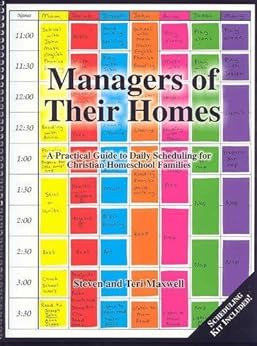FAS Treatment Part V, Parenting with Schedule
Parenting with Schedule
* This the final post in a series on FAS treatment.
If you are just joining me, you may want go back and read through the series.
* This the final post in a series on FAS treatment.
If you are just joining me, you may want go back and read through the series.
Years, ago, when I took Rafal to a children’s Hospital for an initial appointment prior to a cleft-palate repair, I was confronted by a nurse after she learned that Rafal was adopted from Poland. As I held this nineteen month, nonverbal baby on my lap she demanded, “How do you understand him?”
“He doesn’t talk much because of the cleft-palate.”
“Do his brothers and sister interpret for him?”
“No, he doesn’t speak.”
“How do you know when to feed him? How do you know if he is hungry?”
“Well, when he wakes in the morning, I feed him breakfast. When it is lunch time, I feed him lunch.”
This verbal berating went on for about fifteen minutes. When I assured her that I followed a schedule and he was getting proper sleep and nutrients, she was still stuck on the language issue. Actually, she was stuck in the child-centered family thinking. In other words, if this baby couldn’t tell me when he wanted a teddy graham then something was wrong with my parenting. The truth was that my keeping him on a schedule was helping to alleviate his fear and build the connection that he needed with me. I was being proactive and providing for him before he had to ask.
FAS children don’t just need a schedule for sleeping and eating, they need a place to do those things. For instance, if an FAS child sits at the dining room table for dinner, he may be upset if he has to sit at the kitchen table one night. I just upset things a little for Rafal because he usually eats breakfast in the kitchen at the counter. I just gave all of our stools to Amerey when she moved into her apartment, promising the family I would shop for some new ones later in the summer when we have some extra money. Thankfully, our summer habit is to sit on the deck outside when the weather is nice and eat.
What kind of schedule are we talking about here? It doesn’t have to be military style, but it does have to be consistent. FAS kids have difficulty with the concept of time. A schedule or list of events for the day helps them to know what’s coming next and helps them feel more secure about it. During the school year, I have a schedule posted for the school day, including each subject and lunch. I also write things on the white board in the dining room. Some people laugh at me for having a huge white board in a main living area. It is a powerful tool! When I write something on the board such as ‘vacuum your room’ or ‘read for half an hour’ it does two things: it removes my telling them and it puts it in writing so the kids can keep checking it if they forget. It is important that an inanimate object is giving instruction to an FAS child because the child cannot be angry with a white board for long. My kids know that if I want them to do something that I write it on the board. If one of them comes and asks me, then I just say, “it’s on the board.” Also, FAS kids cannot remember two step instructions such as ‘make your bed and get dressed.” With the white board system, the child can check fifty times and the board doesn’t get frustrated with them for forgetting. When Rafal gets off task during the school day, instead of telling him what’s next, I walk to the board with him or the paper schedule and have him check what needs to be done. (The school schedule I use comes from Managers of their Homes by Teri Maxwell).

There is no magic cure for FAS, but these three things: nutrition, activity and schedule, help to alleviate many of the symptoms. An FAS child will crave sugar just as an alcoholic craves a drink. It is not in the best interest of the child to feed him a diet of junk food. Simple carbs just turn to sugar in the body. Outdoor exercise relieves anxiety and depression. It gives kids a good tired feeling not the pseudo tired that computer games and tv give. Structure helps these kids feel as if there is some control and order in their lives. Fear of the unknown is the greatest fear. A simple white board can make things known and offer that security.
